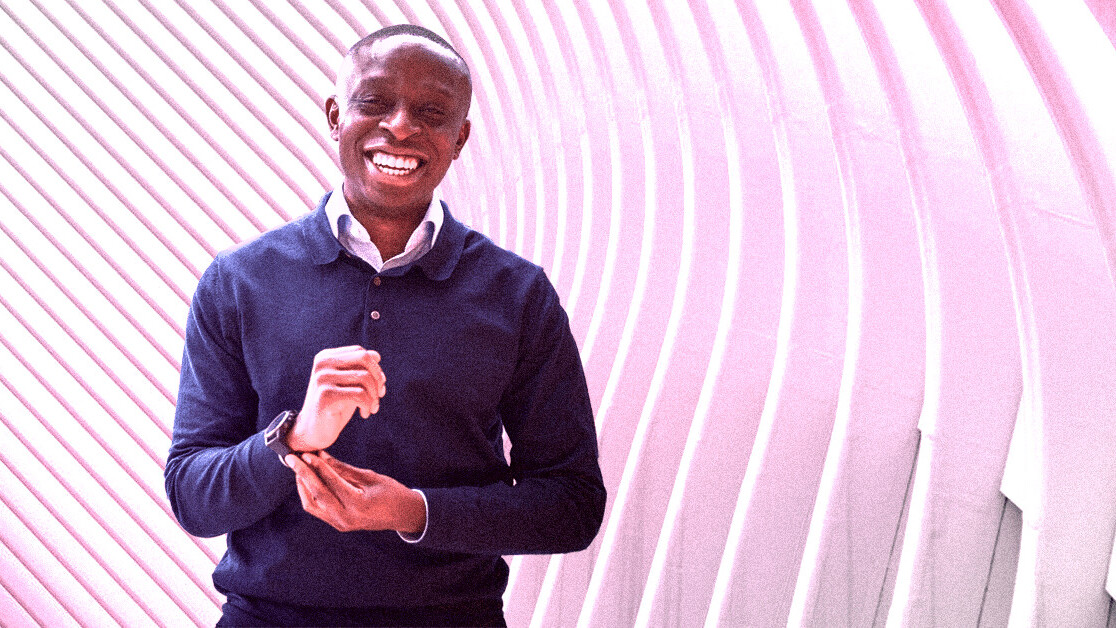
UPDATE: Tunde Kehinde will be joining our flagship online event, TNW2020, October 1 & 2. Secure your free ticket here and hear how the most successful founders kickstarted and grew their companies.
Setting your company up for continuous growth and possibly reaching unicorn status is pretty much the holy grail for startup founders — but finding the exact way of how to reach that goal is the tricky part.
I rang up Tunde Kehinde — a seasoned emerging markets entrepreneur who co-founded Africa’s first unicorn, Jumia Nigeria, and now runs Lidya — to pick his brain on how to find the perfect co-founder, how to scale, and when entrepreneurs should give up on ‘hope.’
It’s all about the team — and especially the co-founder relationship
“I know this sounds like a cliche, but the second my business partner and I started working together, I felt how we laid a solid foundation to the current growth of the business,” Kehinde says. “It is truly all about the people on your team.”
Kehinde founded Lidya — a financing platform for small businesses in emerging ecosystems — in 2016 with Ercin Eksin, his current co-CEO and former colleague at Jumia. While enjoying the morning sun in the park, Kehinde explains why such a big part of Lidya’s success should be attributed to the close working relationship he and Eksin have managed to cultivate.
“If we the co-founders break our parts, it affects so much,” says Kehinde. “Investors are investing in both of us and our complimentary skills. So if we break our parts, it actually breaks the foundation of why the investor put forth that money, or even why your first customers and employees joined.”

Kehinde emphasizes that the co-founder relationship is at the heart of everything, even when you scale and have to work on a myriad of new partner relationships, the bond between the co-founders is the foundation you’ll build on for the rest of your growth journey.
So how do you go about finding the perfect co-founder?
Kehinde and Eksin had the luxury of working closely together for years at Jumia before setting out with their own venture.
While working at Jumia, they were in close connection with SMEs and saw how difficult funding was for startups in emerging markets, so they set out solve it with Lidya’s high-tech lending platform. But Kehinde and Eksin didn’t just get the idea for Lidya while working at Jumia, they also got the opportunity to learn each other’s strengths and weaknesses in a low-risk setting, without the added pressure of launching a company.
When they finally did launch Lidya, Kehinde says they knew exactly what they could expect from each other as they’d seen each other at their worst, which is a great baseline for assessing a future long-term working relationship.
But what if you don’t have the luxury of having worked alongside a future co-founder for years on end, how can you assess whether someone will be the right partner?

“What I typically tell my friends is: if you’re looking for a co-founder, try to take the first few months to do some aspect of the venture together, with as little risk as possible. It can be a side-project, research, or some output deliverable before you start splitting your equity,” Kehinde explains.
“If you can do it, do it. Because three to six months of understanding how each other works is nothing in the grand scheme of potentially 20 or 30 years working together. When we actually get to doing work, do I enjoy working with you? Do I learn from you? And do we have shared values? So that’s what I advise my friends to do.”
Scaling up: the 80/20 ratio and team autonomy
Emerging markets are tricky to grow in, and even Europe’s single market can be tough as it’s fragmented by language and customer needs. Lidya’s currently operating its SME lending platform in Nigeria, Poland, and the Czech Republic.
Since operating at a loss until IPO isn’t an option in these economies — unlike in Silicon Valley — Kehinde says they deliberately set up shop in countries where they’d be able to become profitable within two to three years. A key component to reach that was flexibility.
“To scale, we need a base and that base should be able to travel. But then don’t be naive and think that someone who sits in Prague will react to a loan the same way someone who sits in Warsaw. So you need strong local teams on the ground that can complete that last leg and communicate to the customer in an impactful way, without completely distorting the base of our product.”

To maintain the integrity of the base product, Kehinde says 80% of Lidya’s platform is completely transferable, while the last 20% they aim to localize as much as possible.
He’s not sure whether 80/20 is the ‘golden ratio’ for every company, but it has allowed Lidya to give much greater autonomy to strong local teams. This is a big growth boost as the strong local hires know their market inside and out and can tailor the product to their customer base — without sacrificing potential scaling into new markets by affecting its transferability.
However, this doesn’t prevent the necessity of thorough research. While it took Lidya three months to launch in a new market, Kehinde says that was preceded by almost a year of researching markets — including meeting up with regulators, potential partners, and customers on the ground — to identify the right countries to expand to.
Basically, you have to do your homework, because…
Hope is not a strategy
In his rather succinct and straight-forward Twitter bio, Kehinde still takes time to squeeze in the motto ‘Hope is not a strategy.’ Curious to know why this ominous phrase is so important to such a cheery person as himself, I simply ask why he’s so intent on entrepreneurs should give up on hope?
Kehinde gives a big laugh. “No no, by all means, keep on hoping!”

To him, this phrase is a nice reminder that he has to plan and he shouldn’t be scared to confront reality. “We entrepreneurs are naturally optimistic, right? We’re the ones with the big vision and we believe our customers will want what we’re selling — but the reality is things won’t necessarily happen the way you expected.”
“So this slogan challenges me to say, okay, what’s plan B? What’s plan C? And are you ready to react if something happens? So it’s really about accepting the responsibility that you do have to meet payroll every single month, you do have to deliver a return to your customers, you have to keep the promises you’ve made to your investors. You have to meet that responsibility,” Kehinde emphasizes.
This type of mindset will also set you up for success as it prepares you for the unexpected. While no one could’ve predicted the global COVID-19 pandemic, Kehinde points out that people practicing this way of thinking might find themselves having over-indexed on liquidity ‘just in case’ something came up — making them more prepared than others.
“You have to take on the challenge of saying, if there’s 90% probability of what I hope is going to happen will come true, am I ready for the 10% scenario? How will I attack, communicate, and solve the problem if that 10% comes a reality.”
Interested in hearing more from Tunde Kehinde and other amazing entrepreneurs? Then secure your free ticket to TNW2020 now!
Get the TNW newsletter
Get the most important tech news in your inbox each week.




